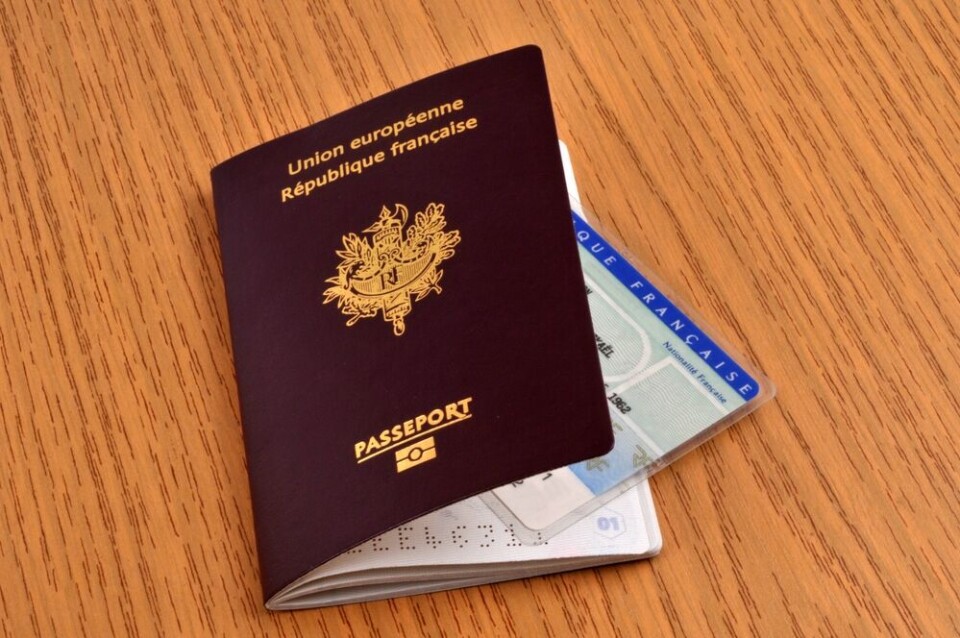-
How long did it take you to get French nationality?
Share your experience with other readers
-
Immigration: Children born in France to foreign parents may not have automatic nationality
The interior minister said he was considering the change, as part of wider plans on immigrants
-
Does France have a ‘golden visa’ scheme for gaining nationality?
As an EU Schengen Area country, France is affected by golden visas obtained elsewhere that allow non-EU people to work, live, and travel in Europe
Can a person get French citizenship if their parents were French?
France’s nationality laws are protective of ‘rights by blood’ but there can be issues if parents cut off links to the country

Reader Question: My parents are both French citizens but I was born in the US where they moved to after World War Two. Do I have any additional rights because of this? For example, can I stay for more than 90 in 180 days?
While being the child of a French citizen does not give you any automatic rights, it may make it a lot easier to acquire French citizenship.
You ask if it means you can stay in France longer than 90 days.
This is a general rule for all non-EU citizens visiting France, regardless of their parent’s nationality, unless they have a visa to extend their stay for longer than the standard 90 days.
In some cases, spouses and family members of EU (but not French) citizens can stay longer if they are moving to an EU country with their family member – but this does not apply in your case.
However, the good news is that you may be able to apply for citizenship, even if you have never lived in the country because of your French parents. This is via filiation, or citizenship by descent and would, of course, allow you to visit and stay as you wish.
This is the path that the father of former British prime minister, Boris Johnson, recently took.
Read more: How come Boris Johnson’s father was able to become French?
Any children of French parents can apply
Unlike many North and South American countries, which use the rule of jus soli (right of birth on land) to bestow citizenship, French nationality rules include the jus sanguinis (right of blood).
Those born in France to non-citizen parents can gain citizenship from the age of 13, if they fulfil a number of requirements but citizenship can also be obtained if you can prove you have ‘French blood’.
Unlike some other countries, however, this rule only goes back one generation, meaning either one or both of your parents needs or needed to have held French citizenship.
You can only claim citizenship in this way if your parents directly have French citizenship. In situations where the parents themselves could apply for their citizenship via blood links they would need to have received confirmation of their French nationality before the next generation could apply.
You will need documents including your and your parents’ birth certificates and passports or other proof of their French nationality, your parents’ marriage certificate and proof they are your parents - your birth certificate should show this.
The Department of Nationality for French People Born and Established Outside of France – which you can contact via the Tribunal de Paris – are responsible for these requests.
You must contact this department when you begin the process of applying, and generally the request must be submitted in person at your local French consulate.
Must have had ‘contact with French state’ in last 50 years
An additional requirement, however, relates to the possession d’état de Français, loosely translated as ‘behaving like a French citizen’.
This expression does not appear to be defined precisely, but in practice it would most easily be shown by some form of official contact with the French state, whether via passport renewal, voter registration, or consular registration ie keeping up links with the country.
Consular registrations would include, for example, registering births and marriages for purposes of France’s état civil records.
Article 30-3 of the French Civil Code states that: “When a person habitually resides in or has habitually resided in, a foreign country in which the ancestors from whom he holds the nationality by parentage have settled for more than half a century, that person may not prove that he has French nationality by parentage if he himself and his father or mother who could have transmitted it to him has not ‘behaved like a French citizen’.”
In practice this means as your parents moved from France over 50 years ago, you may find it challenging to use this as a claim for citizenship should your parents not have maintained official contact with the French state.
If you can prove a strong link of your own to France (through cultural, economical, military, or familial means unrelated to your parents), and you have a French citizen parent, you can apply for citizenship although it is not guaranteed that this will be granted.
Related articles
President Macron faces battle over immigration crackdown in France
Are more or fewer visas being issued for France, what has changed?
























